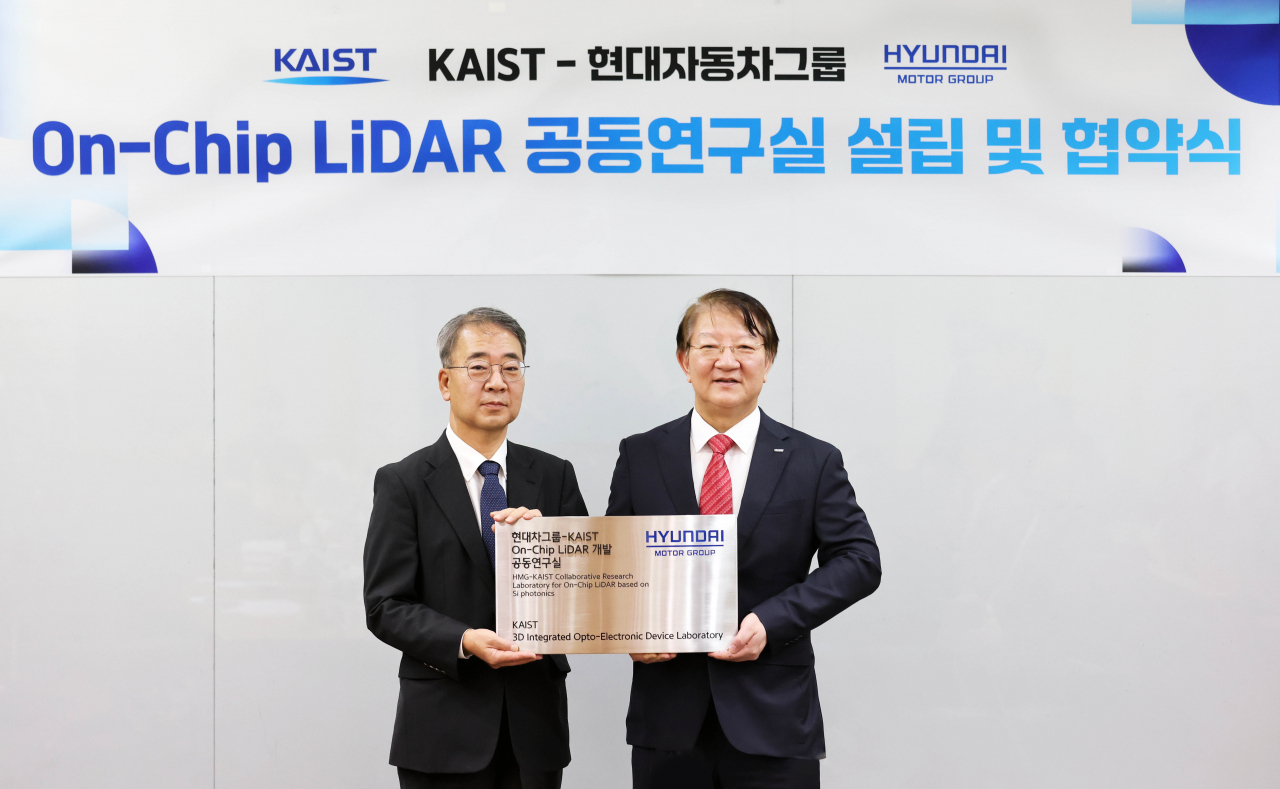
Hyundai Motor Group’s automakers -- Hyundai Motor and Kia -- have joined forces with the Korea Advanced Institute of Science and Technology to establish a joint laboratory to develop the next generation of sensors for light detection and ranging, of lidar.
According to their announcement Wednesday, the joint facility, the Hyundai Motor Group-KAIST Collaborative Research Laboratory for On-Chip Lidar based on silicon photonics, opened on the KAIST campus in Daejeon.
The joint lab will focus on developing lidar sensors that can be used for the two highest levels of autonomous driving -- Level 4 of high-driving automation and Level 5 of full driving automation -- where little to no human override is required. The researchers aim to develop key technologies that can shrink the size of sensors and enhance their capabilities at the same time by utilizing silicon photonics.
“We expect to bring forward the era of full driving automation through the cooperation of Hyundai Motor and Kia leading autonomous driving technology and KAIST having the best global technology,” a Hyundai Motor Group official commented.
“We will provide our utmost support so that the joint lab can achieve tangible results.”
The joint lab will consist of 30 people from researchers at the electrical engineering department at KAIST and researchers at Hyundai Motor Group’s Institute of Advanced Technology Development. The lab will operate through 2028.
“Lidar sensors, the eyes of cars, are a key technology for future autonomous vehicle development that automakers should internationalize,” said Kim Sang-hyeon, an electrical engineering professor who will be in charge of the joint lab.
“We will be able to lay the technological groundwork that can lead (lidar technology) as we establish the joint lab at a critical time like this.”



















![[Today’s K-pop] Treasure to publish magazine for debut anniversary](http://res.heraldm.com/phpwas/restmb_idxmake.php?idx=642&simg=/content/image/2024/07/26/20240726050551_0.jpg&u=)